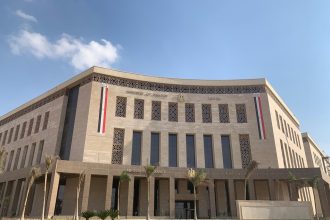Egypt’s Deputy Prime Minister for Industrial Development and Minister of Industry and Transport Kamel Al-Wazir held an extensive meeting with leading car manufacturers and automotive feeder industry representatives to discuss strategies for deepening the automotive industry in Egypt.
Opening the meeting, Al-Wazir noted that the gathering was part of a series of consultations with industrial sector partners, which have included a broad meeting with steel manufacturers to explore mechanisms for localising automotive sheet metal production, as well as visits to multiple factories. The aim, he said, is to align national production capabilities with the technical requirements of automotive manufacturers and enhance integration within supply chains.
The meeting reviewed available capabilities and the current challenges in localising automotive components. Al-Wazir listened to the views of automotive manufacturers on their needs and priorities, which included the establishment of plastic injection moulding factories for car parts, stainless steel plants, tyre production facilities, and other feeder industries.
He instructed the Ministry of Industry to begin immediately compiling a comprehensive database identifying key demands, challenges, and opportunities for localising the automotive industry, while strengthening links between car manufacturers and potential suppliers of components not currently produced locally. He further directed that these feeder industries be added to the list of 28 promising sectors eligible for additional investment incentives.
The outcomes will be presented at the Reverse Exhibition during the Industry and Transport for Sustainable Development Expo in November 2025 — a platform designed to match import needs with local manufacturing capabilities, boost industrial integration, reduce imports, save foreign currency, and enhance competitiveness, particularly in the automotive sector.
Al-Wazir stressed the importance of coordinating the efforts of all relevant entities to achieve the goal of localising the automotive industry. This includes cooperation with the petrochemicals sector to increase the added value of locally produced plastic injection products used in vehicles, and alignment with the Egyptian Organization for Standardization and Quality and the Industrial Control Authority to ensure compliance with the highest technical standards.
He also announced plans for field visits to automotive feeder industry producers to examine production lines, assess technical capabilities, and identify practical challenges. These visits, he said, will help devise effective solutions to support localisation plans and improve the efficiency of local supply chains.
The minister emphasised that the localisation strategy is built on sustainable legislation, incentives, and implementation plans — creating a stable and attractive climate for long-term industrial investment. The strategy includes a clear, time-bound roadmap to track progress and deliver tangible results.
Al-Wazir urged manufacturers to take immediate, practical steps to help meet localisation targets, noting that past experience has shown that those who took early initiative in local manufacturing achieved significant success and entered new markets. He underlined Egypt’s substantial production capacity and industrial infrastructure, stressing that leveraging these strengths now would contribute meaningfully to the national economy and position Egypt as a regional hub for automotive manufacturing and components.
For their part, automotive manufacturers and feeder industry producers expressed appreciation for the government’s efforts to localise the industry and confirmed their readiness to cooperate in achieving industrial development goals. They acknowledged ongoing challenges in certain production stages, particularly in sourcing raw materials and components not currently produced locally, and called for maintaining incentives and streamlining procedures to enable a qualitative leap in the local industry and boost competitiveness in both regional and international markets.




